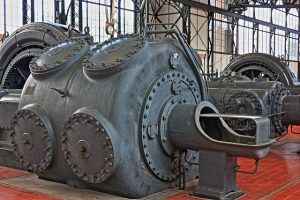
Reliable equipment and infrastructure play a critical role in your ability to maintain operational efficiency and stay competitive in your industry. Routine and preventive maintenance are often overlooked, but should be a fundamental investment in your business when your goal is to achieve long-term success.
Although maintenance costs money, it’s a necessary expense that comes with running a business. Rather than seeing it as an inconvenience, here are all the best reasons a solid maintenance program can shield your business against costly breakdowns, unexpected downtime, and disruptions that tank productivity.
Small breakdowns can have big consequences
When you rely on something to meet deadlines and fulfill customer orders, it doesn’t matter how small it is – if it breaks, your whole business will come to a halt. It doesn’t matter if it’s a copy machine, a laptop, a tablet, or an oven. If it’s involved in daily operations and it breaks, your business will come to a stop.
Sometimes the smallest pieces of equipment can break down unexpectedly, causing devastating consequences for your business. If you’re running a hot sandwich shop and you only have one oven, you’ll have to shut down until you get it fixed. If you’re running a coffee shop and your coffee grinder breaks, you won’t be able to serve your usual beans. You can substitute with pre-ground beans from the grocery store, but your customers will notice and they won’t be happy.
Routine maintenance can prevent a lot of issues by catching problems before they become large enough to cause a breakdown. However, the smaller the equipment, the easier it is to forget about maintenance.
Many smaller pieces of equipment also require periodic parts replacement, like pumps. It’s easy to install small things and then forget to add them to your routine maintenance plan, but doing so is crucial for the longevity of your business. For example, if you have an HVAC system, that’s an important piece of equipment. If your chiller pump stops working, you won’t have air conditioning. That can lead to discomfort for you and your employees and frustration among your customers.
No matter how small the part, find out how often it needs routine maintenance, if you might need new parts, and schedule it into your maintenance program.
Downtime is costly
Whether it’s planned or not, downtime is costly. For every minute you’re unable to operate your business, you’re losing money. During downtime, you’re not producing goods, serving customers, or keeping up with custom orders. If you make custom goods, there’s a good chance you’ll be late with orders, and if you’re a wholesaler, your customers may decide to work with your competitors.
In the long run, downtime costs more than just the current sales you’re losing. It can cost you long-term business, client relationships, and your reputation. In most situations, downtime could have been prevented with regular maintenance.
Routine maintenance improves safety
Sometimes putting off maintenance subjects workers to unsafe conditions. This can cost your business plenty of money in the form of rising workers’ comp policy fees and regulatory fines, not to mention lawsuits.
By implementing regular maintenance on all of your equipment, you can reduce workplace accidents, ensure regulatory compliance, and keep your employees safe.
Maintenance can prevent turnover
If you don’t maintain the equipment your employees use on a daily basis, there’s a chance they’ll become frustrated and bitter about the situation. Nobody likes being forced to use things that are obviously unsafe or broken. In fact, your employees can legally refuse to do dangerous work under certain conditions, which can impact your business, even if they don’t quit.
Whether you’re dealing with employees quitting or not doing work because your equipment is broken, consider updating everything that’s not working and implementing a maintenance plan right away. Yes, it will cost more money to get new equipment, but it can improve employee morale, make people more productive, and eliminate the legal liability of unsafe working conditions.
Invest in your business with routine maintenance
Implementing a routine, preventive maintenance program is more than an operational necessity – it’s a strategic investment in your business’ future. By prioritizing maintenance, you’ll protect your physical assets while improving efficiency, maintaining a safe working environment, and fostering customer satisfaction. All of this will make you better equipped to thrive in your industry and avoid the costly impact of unexpected, yet preventable downtime.







